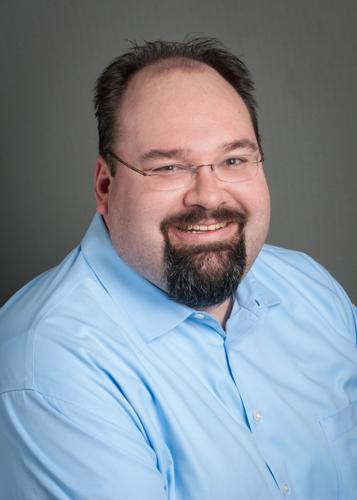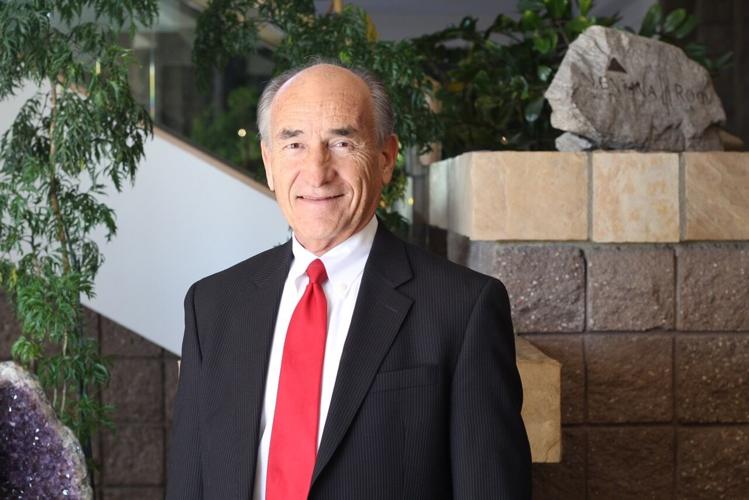There are two open seats on Pima Community College’s Governing Board this election cycle. In each nonpartisan race (District 2 and District 4), two candidates are vying for the available volunteer six-year term on the board.
The general election is Nov. 8.
The college, which serves around 17,000 students in Southern Arizona, is at a crossroads.
After losing more than 20% of its students over the past six years, leadership is strategizing on how to rebuild enrollment amid a rapidly changing economic landscape.
On top of that, there’s a 3-2 division on the board itself, with the dissenting members (neither of their seats are up for re-election) often criticizing Chancellor Lee Lambert’s leadership.
The Arizona Daily Star interviewed each of the candidates to hear their plans for moving PCC forward.
District 2 (downtown Tucson)
Demion Clinco, incumbent
Vice-chair Demion Clinco was first appointed to the board in 2015 and then elected to serve a six-year term in 2016. At that point, the college was still on probation with its accreditor. During his first term he served as chair for three years. Clinco, a former state representative who has led numerous local historic preservation efforts, said he is proud of how far the college has come since he first took office.

Demion Clinco has served District 2 on the Pima Community College Governing Board since 2015. He's running to keep his seat for a second term this November.
“Over the last six years, the college has really transformed into a powerhouse,” Clinco said.
He pointed to its focus on aligning with industries of Southern Arizona through the construction of the Centers of Excellence, which is a multi-million-dollar project aimed at providing students training for some of the region’s most in-demand jobs, as one example. Other evidence of improvements during his term, he said, include updating faculty pay scales and making the transfer from PCC to the University of Arizona a more seamless process for students.
“I’m running for re-election because the job’s not done,” Clinco said. “We’ve built these world-class facilities but we still have to build the best-in-class programs to serve the students of Southern Arizona.”
Clinco, whose campaign filings show he raised more than $156,000 this election cycle, said there’s no “magic bullet” strategy for attracting more students to enroll in its wide array of degree and certificate programs. “Part of the solution is creating relevant programming that results in good-paying jobs,” Clinco said. “We may not know what’s going to happen in our economy in two years, but PCC is poised through its ability to pivot and rapidly respond to the needs of its community.”
As for the division he’s already experienced on the board, Clinco, who generally supports Lambert’s leadership, said “elected bodies don’t always agree.” Despite that, he said, he’s encouraged by the many unanimous votes the board has made to improve the college, including its recent passage of faculty and staff raises. “Having a little disagreement on the board is somewhat healthy,” he said. “I think it’s part of the democratic process.”
Theresa Riel
Theresa Riel taught math at PCC for 23 years. And after retiring a few years ago, she has a few ideas for how to improve the college.

Theresa Riel is running for the District 2 seat on the Pima Community College Governing Board.
“Instead of being politically motivated, I’m doing this because I value the college,” Riel said. “I just want to make sure there’s someone on the board who knows what the college needs from the inside out.”
If elected, she intends to bring her math background to the board’s analysis of data about student success so that it can make the most informed decisions.
“You can’t expect the board to make sound decisions if what they’re interpreting through faulty graphs and data is making them believe something is true that really isn’t,” she said.
Riel, who raised $11,010 to finance her campaign, said she would operate the elected post on four main pillars: taking a student-centered approach; transparency of data presented to the board; respect and representation of faculty and staff in decision-making; and board autonomy and resilience.
When Riel worked at PCC she was an outspoken faculty member, and if elected to the board, she said she wouldn’t be afraid to speak her mind on behalf of students.
“I have the communication skills and the group working skills that I can work with anyone on the board, no matter what they believe,” she said. “I have never said I want to get rid of the chancellor. I want to support the chancellor on initiatives and goals that he sets for himself that are pro-student, pro-education that help teaching and learning.”
That approach, she said, is what she would bring to shaping enrollment efforts.
“We need to reach the high schools to make sure students know college is an option,” Riel said, adding that, in her view, there are not enough job training programs right now to meet the rising demand of skilled workers.
She also said she’s both heard from voters and experienced firsthand the frustration of the enrollment process — the registration website is not intuitive and the in-person process is often long and tedious. Those are both things she’d want to address if elected because, she said “Enrollment isn’t going to go up if we’re putting up these kinds of barricades.”
District 4 (eastern Pima County)
Meredith Hay, who has served District 4 for the past six years, is not running for re-election. Hay did not respond to the Star’s request for comment about why she decided not to run.
Greg Taylor
Greg Taylor knows how life-changing a college education can be.
“My mom was the first person in our family to go to college,” said Taylor. “For people who are willing to work hard, community college is a ladder to a better life. It’s an institution that’s at the heart of our economy to help folks get the skills they need to find well-paying careers.”

Greg Taylor
He’s running for the board to ensure that PCC remains a place where people in Southern Arizona can make that happen.
“I hope to continue to make sure the college remains accessible, affordable and accountable so people can continue to pursue those paths,” he said.
In Taylor’s view, that approach will help with attracting more students.
“The college is on the right track to being able to address (the enrollment drop), but we need a few more semesters of that,” he said. “Part of it is a level of accountability and making sure the college is offering programs that are in-demand that allow people to go on to well-paying careers.”
Taylor praised Lambert’s Centers of Excellence for meeting some of those workforce demands, but also said the college’s focus on recruiting students in the high schools and those who want to transfer to a four-year university would remain a part of his plan to increase student numbers.
To accomplish that, Taylor, who has raised $47,699 in campaign contributions, said he’d translate his years of experience as regional vice president of community affairs for Arizona Complete Health to his work on the board. In that role, he’s learned how to work with community organizations to help the company's health plan members live healthier lives.
“I see the value in grassroots organizing. Stuff doesn’t get done at the college — or any organization — without arms, legs and boots on the ground making things happen and being able to have honest conversations,” he said. “I will always be someone who’s willing to listen.”
Taylor said that’s the guidance he’d also bring to the divided board. “We have to figure out a way to have people disagree without disagreeing disagreeably,” he said. “Sometimes a reset is good.”
Nick Pierson
Nick Pierson, a longtime financial advisor, has years of experience working with young people in Southern Arizona. His investment in their futures is one of the reasons he is running for PCC’s Governing Board.

Nick Pierson is running for the District 4 seat on the Pima Community College Governing Board.
“The younger they are, the bigger spark they seem to have about their excitement for the world,” Pierson said. “It seems like a lot of the young people today don’t have quite the same spark in terms of what they see as opportunities. That’s something that concerns me, and I think that’s one of the areas Pima Community College could have a big influence.”
Pierson, who was born in Nogales to parents of Mexican descent and grew up on the Tohono O’Odham and White Mountain Apache reservations, said a community college with a diverse student body like PCC’s needs to focus on recruiting students from all different backgrounds.
“Pima is super affordable,” Pierson said. But, “we have to do a better job with outreach.” His ideas include offering more remedial coursework to recent high school graduates, and reaching out to underrepresented male, Hispanic and indigenous students. He plans to use his experience working in finance and on several nonprofit boards, to find the money to make it happen.
“Financial decisions take a lot of research,” he said. “You need someone who knows the financial analysis, passionate about helping students and increasing the outreach to the community. I’m the only candidate in the race that can bridge all of those areas.”
Pierson, who has not raised enough money for his campaign to require he file that information with the country, said he’d also be the “only candidate who would be able to work with both sides of the board.”
“I’m bilingual. … I have an understanding of the culture here in Southern Arizona and the culture on the border,” said Pierson, who added that he is generally in favor of Lambert’s leadership of the college. “I feel I can be that mediator, which is needed.”
Correction: An earlier version of this article incorrectly described PCC Governing Board's District 4 seat as representing western Pima County. The district represents the eastern part of the county.







